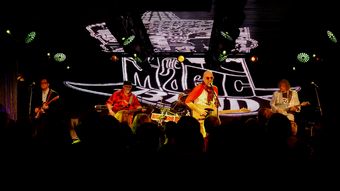Publikace, nahrávky a jiné výstupy
Přehled toho, co jsem napsal a zveřejnil (jako sociolog) nebo nahrál a vydal (jako muzikant). Prostě veřejně dostupné "výstupy". V případě, že je to právně a technicky možné, postupně sem dávám k dispozici i plné texty a do příslušných oddílů hudební sekce pak i nějaké hudební ukázky ve formátu mp3.

Album s písněmi na texty Milana Kozelky.
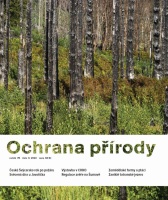
PRACH, J. / KONOPÁSEK, Z. / ŘÍHA, C. (2023): Jak stavět v krajině: Návrh webové aplikace na podporu usměrňování stavební činnosti v CHKO. Ochrana přírody, 78 (6): 26-29. Dostupné na adrese https://www.casopis.ochranaprirody.cz/
::::Regulace výstavby v chráněných územích s cílem zachování krajinného rázu je důležitou agendou orgánů ochrany přírody. Agenda vyvolává mezi občanem-stavebníkem a úřadem řadu pnutí. V článku přinášíme výsledky projektu TAČR, který jsme představili před dvěma lety. Výstupem projektu je webová aplikace, která místní kvality krajinného rázu a principy, resp. regulativy z nich plynoucí, pojednává kontextově citlivým způsobem a přístupnou formou. Vychází z Preventivních studií hodnocení krajinného rázu, která AOPK ČR pro jednotlivé CHKO pořizuje. Webové rozhraní umožňuje generovat tisknutelný dokument přímo na míru. Aplikace by měla přispět k lepšímu pochopení diferencovaného přístupu – proč je obdobný stavební záměr v některých částech CHKO nežádoucí a v jiných částech CHKO nepředstavuje problém.
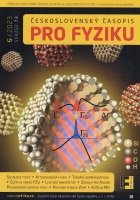
KONOPÁSEK, Z. / MARŠÁLEK, J. / HADWIGER ZÁMEČNÍK, L. (2023): Jednička z nejistoty? Sociologie fyziky před tabulí. Československý časopis pro fyziku, 73 (6): 432-437
::::V tomto posledním textu naší série věnované sociologii vědeckého poznání (a poznání fyzikálního zvláště) se přimlouváme za to, aby důraz Science Studies na porozumění vědecké praxi pronikal do školního vědeckého vzdělávání. Vysvětlujeme, že jakési popisování vědecké praxe v sobě zahrnuje i klasická výuka zaměřená na předávání fyzikálních poznatků. Problém je, že se tak děje většinou bezděčně a že tyto popisy nejsou zrovna realistické - neodpovídají tomu, co o kolektivní vědecké praxi díky sociologii vědy víme. Upozorňujeme dále, že ne každá podoba sociologie vědy nám může v tomto ohledu pomoci. To ukazujeme na příkladu debat o Science Education v USA. V několika příkladech naznačujeme možnosti, jak ve výuce pro sociologickou reflexi vědecké praxe otevřít prostor.

KOLNA (2023): Live Kasárna Karlín 221102. Polí5
::::Úplný záznam koncertu Kolny při příležitosti křtu jejího druhého alba.
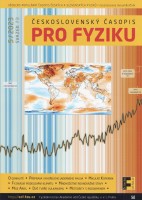
KONOPÁSEK, Z. / MARŠÁLEK, J. / HADWIGER ZÁMEČNÍK, L. (2023): Jak myslí věda? O vědecké genialitě sociologicky. Československý časopis pro fyziku, 73 (5): 346-349
::::Tento text se věnuje klasické postavě historie vědy, jíž je geniální vědec. Sociologie velmi brzy nabídla svůj vlastní výklad toho, kým je vlastně vědecký génius, kterého měla tendenci na jedné straně ctít (nebude tedy velkým postavám dějin vědy upírat jejich velikost) a na druhé straně „vracet na zem“ („génius“ nebude v jejím podání vyvázán z řádného fungování vědy). Z pozdější sociologie vědeckého poznání se geniální vědec takřka vytratí, a to ve prospěch vědeckého kolektivu, komunity, či dokonce „superorganismu“. Šířeji se v tomto textu věnujeme vědeckému úspěchu, ale také vědecké racionalitě, kterou sociologie nepřisuzuje výjimečnému typu „myšlení“ vědců, nýbrž vědecké praxi.
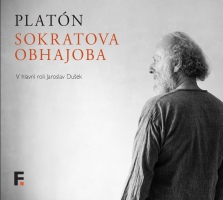
Platón: Sokratova obhajoba (2023). Audiokniha, Praha: Filosofia
::::"Roku 399 př. n. l. čelil Sokrates obvinění, že podlamuje důvěru ve společenské instituce. Žalobci chtěli chránit mladé lidi před zhoubným vlivem nebezpečného skeptika. Athénská demokracie se v oné době cítila oslabená a hledaly se hrozby a příčiny rozkladu. Žalobci před porotce předstoupili s tím, že mají viníka… A tak Athény odsoudily na smrt filosofa. Jeho žák Platón byl tehdy v publiku a obhajobě svého učitele dal slavnou literární podobu." Platónova Sokratova obhajoba v překladu Jaroslava Ludvíkovského, doplněná o komentář prof. Filipa Karfíka, předního odborníka na Platóna. Úprava, scénář a režie Petr Šourek, v roli Sokrata Jaroslav Dušek, athenský lid bubnuje Zdeněk Konopásek.
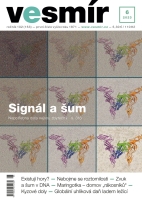
KONOPÁSEK, Z. (2023): Globální uhlíková daň ladem ležící: K politickému rozměru tzv. nepolitických řešení. Vesmír, 102 (6)
::::Jedním z návrhů, kterak přistoupit k řešení tzv. klimatické krize, je globální uhlíková daň. Vypadá na první pohled jako zázračně jednoduchý a soběstačný nástroj. Přesto budí překvapivě málo pozornosti. Je tomu tak (mimo jiné) proto , že se prosazuje jako vyhroceně nepolitické řešení, a to nejen prvoplánově, tedy v tom smyslu, v jakém to sami autoři tohoto konceptu přiznávají. Protože dnešní doba k nejrůznějším deklarovaně nepolitickým řešením obecně tíhne, často pod tlakem existenčního ohrožení a s oporou ve vědecké argumentaci, vyplatí se případ GUD globální uhlíkové daně podrobněji prozkoumat.
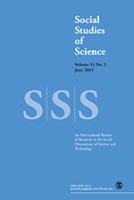
NELSON, Nicole C. / TIMMERMANS, Stefan / WARWICK, Andrew / KONOPÁSEK, Zdeněk / VANCE, Russell E / KUO, Wen-Hua (2023): On first reading Bruno Latour. Social Studies of Science, 53 (2): 174-179
::::Příspěvky pro speciální číslo časopisu věnované Bruno Latourovi, který zemřel v říjnu 2022.
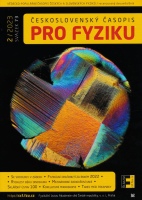
KONOPÁSEK, Z. / MARŠÁLEK, J. (2023): Se sociology v zádech:
laboratoře, texty, teorie. Československý časopis pro fyziku, 73 (2): 102-106
::::Poté, co jsme se v minulém textu zabývali vědeckými kontroverzemi, nyní se zaměříme na některá další "místa", z nichž se sociologové pokoušeli uchopit vědu jako předmět svého zkoumání. Nejprve si ukážeme, co přinesly takzvané "laboratorní etnografie", zaměřené na každodenní vědeckou praxi. Za druhé se budeme zabývat tím, proč je důležité věnovat pozornost vědeckému jazyku a vědeckému diskurzu. A nakonec představíme několik vzácných příkladů sociologického zkoumání teoretické práce, tj. činnosti, při které se zdá, že se toho mimo nepřístupnou vědeckou mysl děje jen málo. V této souvislosti poukazujeme na to, že sociologie, stejně jako jiné disciplíny, různým způsobem utváří předmět svého výzkumu podle svých potřeb a zároveň se v interakci s ním proměňuje.
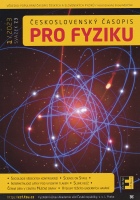
KONOPÁSEK, Z. / MARŠÁLEK, J. (2023): Když se dva hádají, třetí... pozoruje: Sociologické studium vědeckých kontroverzí. Československý časopis pro fyziku, 73 (1): 4-7
::::Toto je druhý z šesti plánovaných textů o sociologii vědy a vědeckého poznávání (a o tzv. science studies obecně). Proč se vlastně vědecké rozepře tak často stávaly předmětem zájmu sociologů? Vysvětlujeme důležitost a metodologické souvislosti tohoto empirického programu. Poté zvláštnosti tohoto přístupu krátce diskutujeme s odkazem na práci, ve které Trevor Pinch studoval experimenty R. Davise, týkající se slunečních neutrin. Ukazujeme, že vědecké kontroverze nabízejí sociálním vědcům důležité východisko k výzkumu vědecké praxe a její mnohotvárnosti, tedy té kvality, která má sklon stávat se neviditelnou, jakmile se vědecké fakty konsolidují.
